Have you heard of the ‘Mouse Shuffle’ or Coffee Badging’ or ‘Productivity Theatre’ yet? There is a label for everything these days, isn’t there? These terms refer to tactics used by employees to show that they are working hard. Why? Because they work in companies where surveillance tools are used to monitor performance. Where working visibility is valued more than actual productivity.
Employees Being Monitored
A recent Forbes survey found that 43% of employees say their online activity is being monitored in 2024 (see link in Comments below). What are we doing? Monitoring people? Using surveillance tools? Where did it all go wrong?
As a Productivity Consultant passionate about helping businesses improve by achieving productivity through employee motivation, engagement and empowerment, reading about performative tactics, surveillance and mistrust saddens me greatly.
When and, perhaps more importantly, why did employers revert to such old-school thinking? Thinking that being seen equals working hard?
Of course, the shift to remote working since the pandemic has utterly changed how we work. But surely we need to match that with intelligent thinking and planning so we can understand the implications of that change.
How about adopting another ‘old-school’ strategy to boost productivity?
Good old-fashioned people management. All that good stuff like communication, building 1-to-1 relationships, providing clear goals and direction, setting weekly targets, empowering people, providing constructive feedback and training.
Good People Management
We don’t need heavy handed monitoring tools. We need human connection and leadership. And we can supplement that with enabling Productivity tools. Tools that help employees drive their own performance.
Who’s with me?
Organisational consultant David Campbell is. In his Forbes article about Mouse Shuffling, he stresses that only when companies start trusting employees more and focus on the work they produce—not on how much they seem to be working—worrying trends like the ‘Mouse Shuffle’ will to fade away.
He predicts that better work-life balance and happier employees would be the result. Of course it would. Haven’t we been saying this for years? 😉
“Businesses should measure success by results, not by how much time someone seems to be working,” Campbell advises. “They should trust employees to manage their time and focus on achieving their goals, rather than simply being online all the time.”
His article is a fascinating read, particularly for anyone in a leadership role, who may be struggling to create a productive culture within their team.
I recommend you take 5 minutes to read it. And please share your thoughts or questions in the Comments below.
Being Productive
Being productive allows people to achieve more in their roles, with less stress. People can get their work done during normal work hours and then switch off afterwards. This brings a feeling of satisfaction and helps overall work-life balance and well-being.
You can read more about the link between Wellbeing and Productivity in our latest blog here.
Check out our full list of Productivity and Wellbeing Training Courses here.




